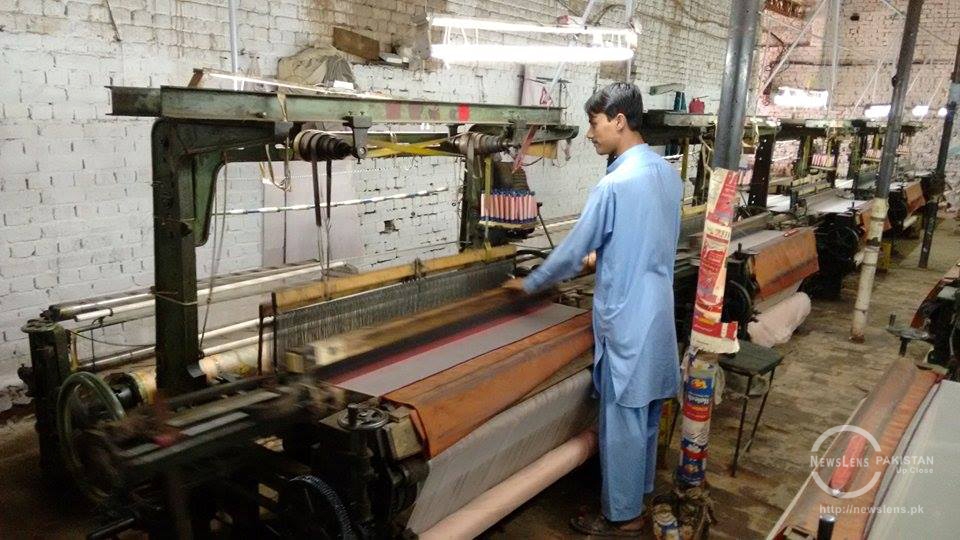
PESHAWAR: The people of Khyber Agency were happy to hear that industries would reopen in their region, after six-year of forced closure. Insurgency, breakdown of law and order, militarization and military operations had collectively undermined the business environment in the Khyber Agency. According to the Internal Displacement Monitoring Centre, in the wake of Operation Zarb-e-Azb, up to 907,000 persons have been displaced in 2014, all of them from Fata’s North Waziristan and Khyber agencies.
“Fata could be purged of terrorism through military operations; however unless the area is considered deserving progress and featured in the overall planning and development scheme of the country, military operations will only serve a timely mechanism to bring about peace,” says Dr Saeed Shafqat, Professor and Director, Centre for Public Policy and Governance, Foreman Christian University.
Khyber Agency’s first military operation started in 2009 and the second in 2014. There were close to 9,000 shops in and around Bara when the first operation against the militant began in Khyber Agency in 2009 translating into a mass exodus of labour, entrepreneur and families from the war-torn region. These business comprised fabric, plastic, oil, steel, silk, cigarette etc.
According to the data provided to News Lens Pakistan, by President Khyber Pakhtunkhwa Chamber of Commerce and Industry, Fuad Ishaq, 2000 small and big industrial units were operational in Khyber Agency before militancy struck the region. Seven hundred big businesses stopped functioning while the smaller one kept dragging.
“Twelve thousand people will find jobs with the reopening of just 150 big businesses, in Khyber Agency,” says Ishaq.
Governor Khyber Pakhtunkhwa (KP), Sardar Mehtab Abbasi, who serves as an agent to the President of Pakistan for the tribal areas, says that militancy and terrorism have largely affected Bara, the industrial zone, of Khyber Agency with serious economic consequences for not only the people of Fata but for the entire country. “Pakistan’s GDP has suffered due to the halt in the business activities in Khyber agency.”
The governor convened a high-level meeting on July 24, 2015 in Governor House Peshawar, where Fata’s political administration, delegation of KP’s Chamber of Commerce & Industries, and other stakeholders were present to discuss Khyber Agency’s business environment.
He announced an amount of Rs1.5 billion for the reconstruction and provision of infrastructure in the tribal areas. The industrialists appreciated the steps taken by the government however, they have demanded the government to open economic zone in the area.
Abdul Hakim Shinwari, a member of the Pak-Afghan Join Chamber of Commerce and Industries (PAJCI) says that though Fata is exempted from sales and income tax, Bara should also be declared as the economic zone.
Economic Zone is a designated area in a country with special economic regulations that are different from other areas in the same country. These regulations contain measures that are conducive to foreign direct investment.
Shinwari further says that the revival of business activities in Khyber Agency will kick off trade with Afghanistan that had reached to almost $5 billion in 2009.
However, the President Chamber of Commerce and Industries Fata, Shahid Rehman, does not see development actually happening in Bara unless the basic infrastructure, such as roads, electricity, communication network, and health and educational institutions is restored and developed completely. With incessant load shedding and curfews one cannot accept progress, says Rehman.
The Assistant political Agent Khyber Agency, Asad Haroon, informed News Lens Pakistan that the KP government plans to sign a memorandum of understanding with Khyber Bank to provide free interest loan to the Bara business community and the government would act as the guarantor for the borrowers. Fata’s political administration he says is trying to rope in some donor agencies to ease out financial constraints felt by businesses in Khyber.
Load shedding he says will be taken care of since the government is trying to get into an agreement with the Pakistan Electric Supply Company to supply uninterrupted power to the industries in Khyber.
Haji Idrees, a silk loom owner in Alamgudar added that around ten to eleven factories would resume
operation shortly. However, he says, “People either visiting or working in Alamgudar need permission to enter the area from the political agent, which could become a liability in future. This is one reason why people are still reluctant to reopen businesses in Khyber.”
At least 39 small silk power looms had been closed in Alamgudar area close to Bara bazaar since September 2009. Almost 6,000 workers had been rendered jobless with the closure of the looms.
Shah Nawaz Khan a social activist believes that this initiative will provide job opportunities and a direction to the youth of the areas. Excessive militarization and war had made them disoriented. However, he insists that unless the government relaxes the entry procedure and makes these areas accessible, real progress would remain a far cry.
When asked about the security card requirement, Asad Haroon says that it is the joint decision of the administration of Khyber agency and Pakistan armed forces. However, he says the procedure of getting the security card is very easy; the worker or the businessman simply has to submit an affidavit to get the card. He added that once militancy is eliminated these conditions would be done with completely.
Twenty-five year old Subhanullah, a worker hailing from Khyber Agency, Bara, was very happy when he received a call from his owner to rejoin work. “After six-year this news was breathtaking. Though I have to walk miles and cross several check posts before reaching my workplace, I am still happy, since the work will bring money, which means education and a good living for my children,” exclaimed an excited Subhan.
Saeed Shafqat underscores the ownership of the civilian administration to revive real social and economic activities in Khyber Agency. “The armed forces have done what was needed of them to do; now the civilian administration should step in for streamlining the tribal areas. The government needs to engage local communities in the activities aimed at economic or social revival of Khyber Agency. Community participation and ownership would put onus on the residents to maintain peace and tranquility in their area in any event.”



